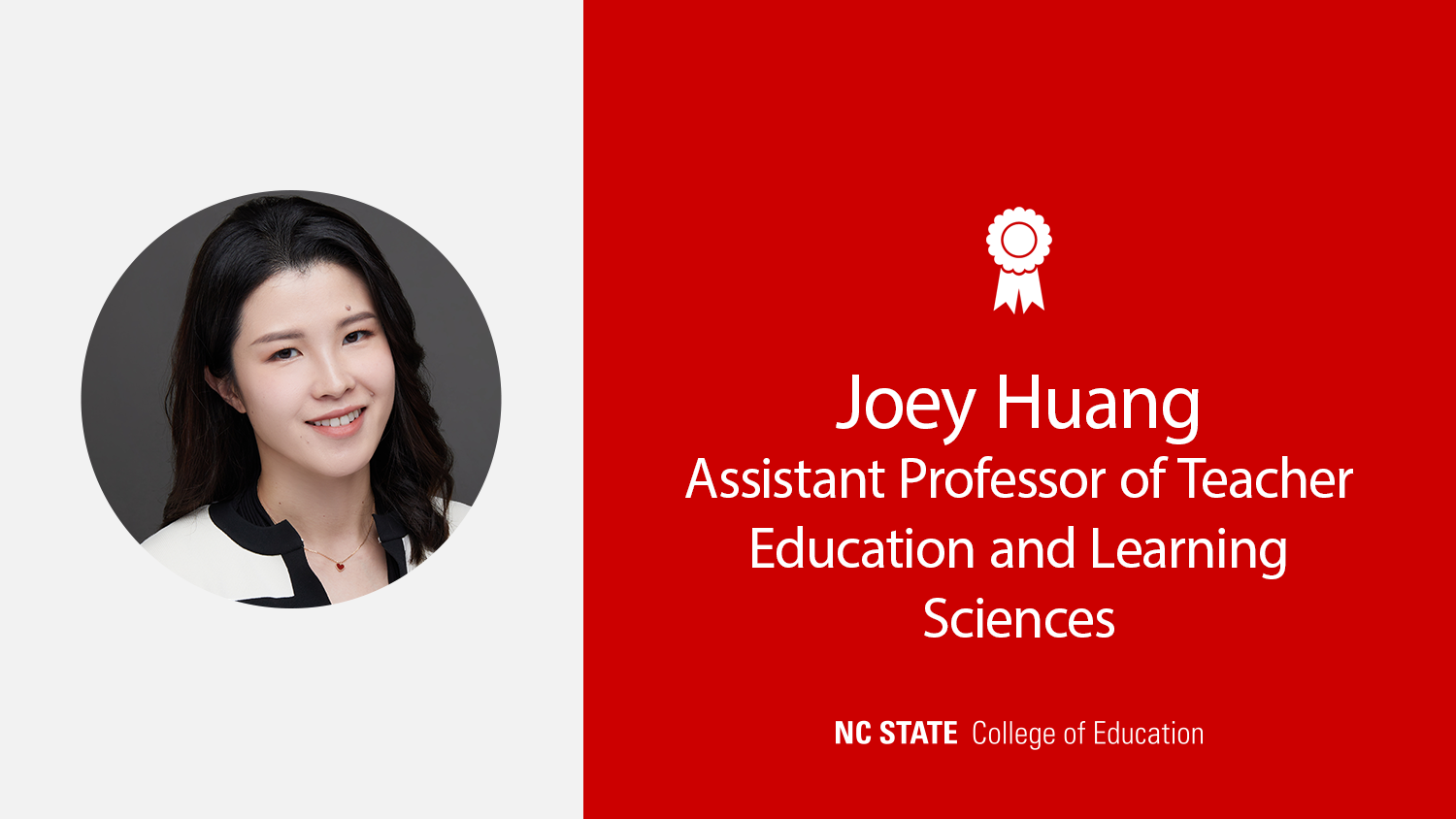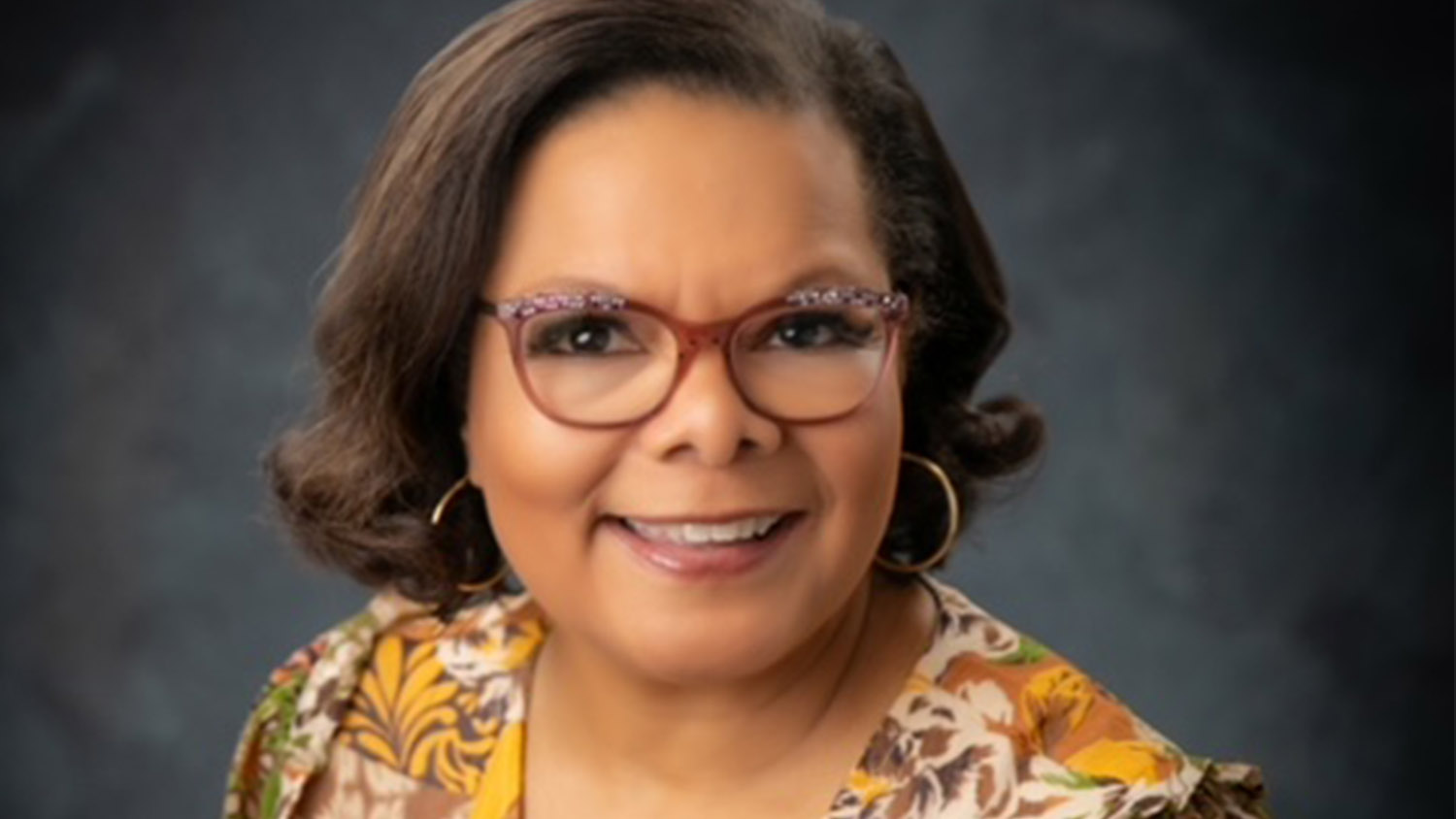Joey Huang will join the NC State College of Education in the spring 2024 semester as an assistant professor of teacher education and learning sciences and a member of the Chancellor’s Faculty Excellence Program, Digital Transformation of Education cluster.
Huang previously worked as a postdoctoral researcher at the University of California, Irvine, and has a background in educational psychology as well as computing.
Learn more about Huang below:
Why did you choose a career in education?
I’ve known I wanted to be a teacher since middle school. I had many questions about our education system at that time. I’m originally from Taiwan, so, at that time, we even had physical punishments. It sounds unbelievable for people who hear that today, but I just had so many questions about that kind of school system, and I felt like there was a better way to design and support more equitable learning and a better and proper way to treat students. I think that was what brought me to education, and I went to the Teacher’s University in Taiwan and then went to the U.S. to study educational psychology and then got a Ph.D. in learning sciences.
What inspired you to pursue a doctoral degree?
The more I got into the system, I realized that there are so many questions surrounding these kinds of issues. Originally, I realized that there was a better way to design a better system and that was such a big question for me because you could work on the materials; you could work with people or how your classroom is organized or, even thinking about the theory of the mindset of the teacher. At that time, when I started getting to know the research in education, I realized that maybe there were more questions that I wanted to ask, and they couldn’t really be answered through a master’s program. So, that motivated me to ask more questions and led me to my doctoral program, where I ended up getting a Ph.D. in learning sciences.
What are your research interests?
My research interests have been focused on how to better design a more equitable learning environment to support STEM learning and now, even more clearly, STEM+C, which is computing. I’ve been working on research around computer science, computer science education and AI and how those tools and platforms can be better designed to facilitate more equitable and ethical learning experiences.
What sparked your interest in those topics?
Fortunately, I had a lot of experiences working with my advisor and mentors and those projects brought me to the field of STEM in general. So, I got into the field of how students learn scientific reasoning and practices in an inquiry environment, how to better support students in a collaborative environment to facilitate their engineering practices.
My own interest in computing education came when I read Jeanette Wing’s article from 2006 about five or six years after it had been published. The article went viral in education because she as a computer scientist brought out computational thinking as a term. She was advocating that computing was for everybody, and I think that it should be more open and the way we teach computing should be more appealing to people who are kind of intimidated by that for the first time. That brought me to thinking about how to bring more underrepresented groups to computing.
As a minority woman who was in education, who was in STEM, I self-taught myself how to do coding, and I’ve been trained to be a quantitative researcher and learned how to code as a statistician. Particularly, I bring my own self-awareness into the topics I study to think about how we can better support women, in general, into the field, and how we can bring those underrepresented groups in STEM+C.
That is what started my interests and then, as a postdoc at the University of California, Irvine, I ended up working with some industry partners like Boeing and those industry experiences also bring my mindset that learning can be more interdisciplinary.
What is one moment or project in your career that you are particularly proud of?
There are many moments that I would say, while I’m not the most proud of, have been the most valuable experiences for me. Working with partners outside of education, such as engineers or computer scientists or UX designers and learning scientists from Boeing or Google, I think those are really valuable experiences for me to think about their perspectives about what is valuable and what is impactful in terms of research we would like to do in education. Their perspective shows what we need for the future of work and what they value as an employer and how we can re-skill or upskill our students to fulfill those goals. I think those are really valuable experiences for me.
Also, my own dissertation, reaching out to public school teachers by myself and doing data collection and carrying cameras into schools in 20-degree weather, trying to be an independent researcher. I think those experiences and people I met brought me up to what I am right now.
What do you believe makes someone an extraordinary educator?
There are a lot of characteristics, but I think the most important thing is being open-minded, especially right now. As an educator in school settings, a lot of times we get challenged because they are living in this AI, cutting-edge technology world and sometimes students know more than teachers, and that intimidates teachers. I think being open-minded was always the advice I gave to them and reminded them that a teacher is their coach for life because they know how to guide someone to be on the right track, which is a critical and impactful role to play in an individuals’ learning journey.
- Categories:



